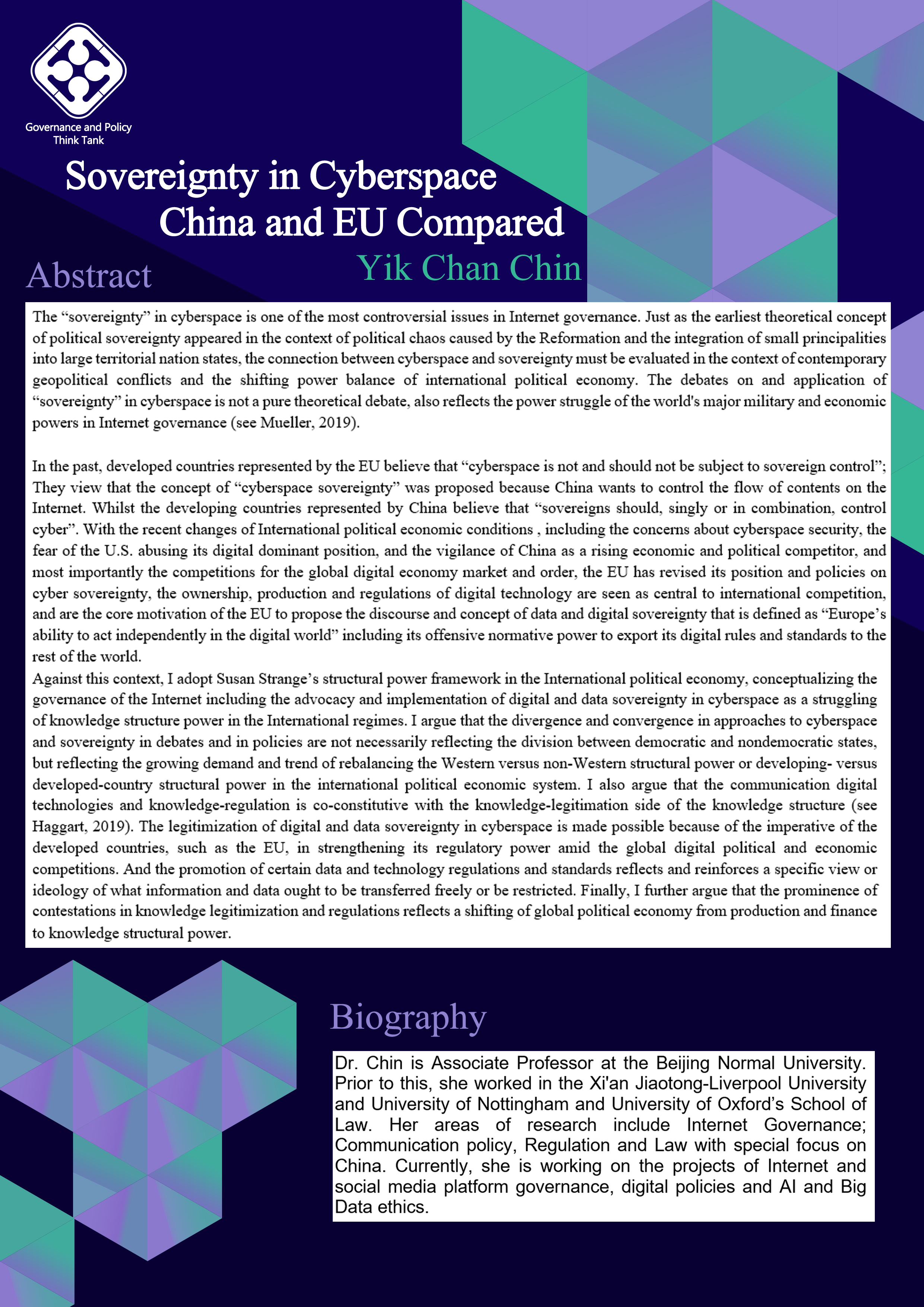درباره نشست
🔶️ گفتگوهای بینالمللی حکمرانی
نشست نخست در سال جدید میلادی
🔷️ موضوع: *حاکمیت در فضای مجازی
مقایسه چین و اتحادیه اروپا*
👤 ارائهکننده: دکتر ییک چان چین
استاد دانشگاه نرمال پکن
با سابقه فعالیت در
دانشکده حقوق دانشگاه آکسفورد
دانشگاه ناتینگهام
دانشگاه ژیان ژیائوتونگ - لیورپول
👤 مدیر نشست: آقای محمد حسین خلیلی
مدیر گروه حکمرانی رسانه و ارتباطات
اندیشکده حکمرانی شریف
⏱️ زمان: پنج شنبه ۲۲ دی ماه ساعت ۱۱:۰۰
چکیده
Abstract:
The “sovereignty” in cyberspace is one of the most controversial issues in Internet governance. Just as the earliest theoretical concept of political sovereignty appeared in the context of political chaos caused by the Reformation and the integration of small principalities into large territorial nation states, the connection between cyberspace and sovereignty must be evaluated in the context of contemporary geopolitical conflicts and the shifting power balance of international political economy. The debates on and application of “sovereignty” in cyberspace is not a pure theoretical debate, also reflects the power struggle of the world's major military and economic powers in Internet governance (see Mueller, 2019).
In the past, developed countries represented by the EU believe that “cyberspace is not and should not be subject to sovereign control”; They view that the concept of “cyberspace sovereignty” was proposed because China wants to control the flow of contents on the Internet. Whilst the developing countries represented by China believe that “sovereigns should, singly or in combination, control cyber”. With the recent changes of International political economic conditions , including the concerns about cyberspace security, the fear of the U.S. abusing its digital dominant position, and the vigilance of China as a rising economic and political competitor, and most importantly the competitions for the global digital economy market and order, the EU has revised its position and policies on cyber sovereignty, the ownership, production and regulations of digital technology are seen as central to international competition, and are the core motivation of the EU to propose the discourse and concept of data and digital sovereignty that is defined as “Europe’s ability to act independently in the digital world” including its offensive normative power to export its digital rules and standards to the rest of the world.
Against this context, I adopt Susan Strange’s structural power framework in the International political economy, conceptualizing the governance of the Internet including the advocacy and implementation of digital and data sovereignty in cyberspace as an struggling of knowledge structure power in the International regimes. I argue that the divergence and convergence in approaches to cyberspace and sovereignty in debates and in policies are not necessarily reflecting the division between democratic and nondemocratic states, but reflecting the growing demand and trend of rebalancing the Western versus non-Western structural power or developing- versus developed-country structural power in the international political economic system. I also argue that the communication digital technologies and knowledge-regulation is co-constitutive with the knowledge-legitimation side of the knowledge structure (see Haggart, 2019). The legitimization of digital and data sovereignty in cyberspace is made possible because of the imperative of the developed countries, such as the EU, in strengthening its regulatory power amid the global digital political and economic competitions. And the promotion of certain data and technology regulations and standards reflects and reinforces a specific view or ideology of what information and data ought to be transferred freely or be restricted. Finally, I further argues that the prominence of contestations in knowledge legitimization and regulations reflects a shifting of global political economy from production and finance to knowledge structural power.

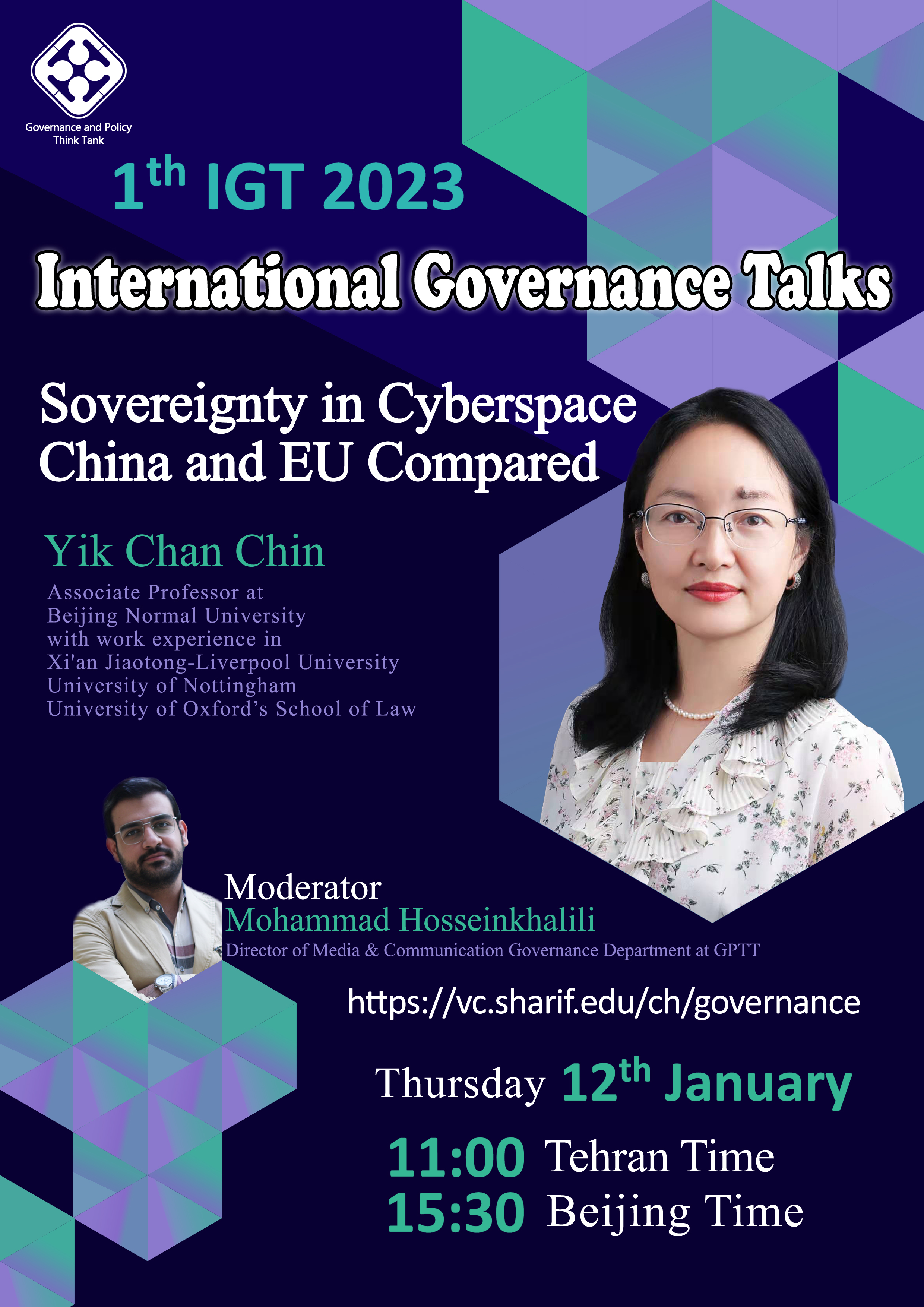
 سید محمدحسین خلیلی
سید محمدحسین خلیلی جایزه دکتر روستاآزاد
جایزه دکتر روستاآزاد
 ویژهنامه
ویژهنامه
 سالنامه 1403
سالنامه 1403
 خبرنامه/شماره 22
خبرنامه/شماره 22
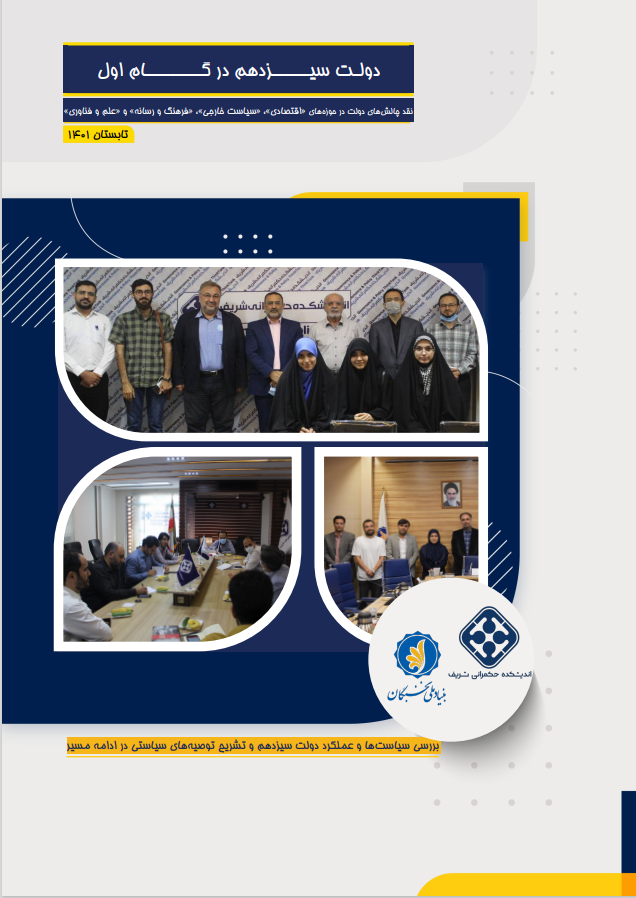 کتاب
کتاب
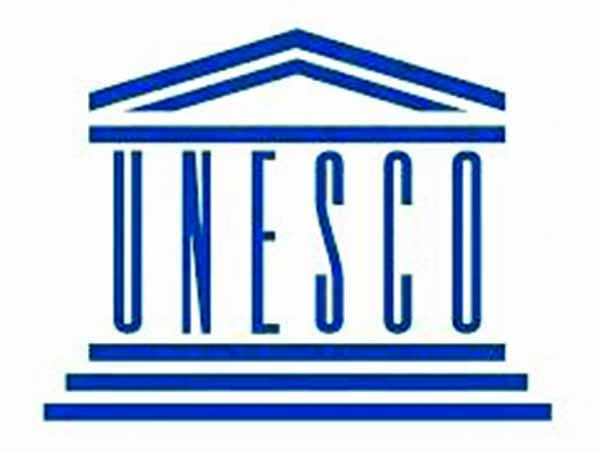 گزارش سیاستی
گزارش سیاستی
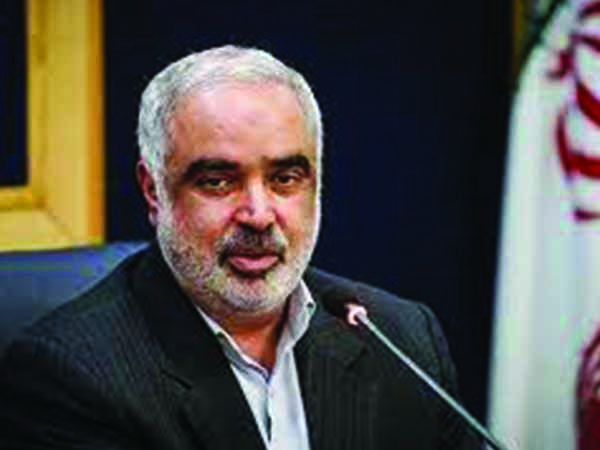 مراسم یادبود
مراسم یادبود

